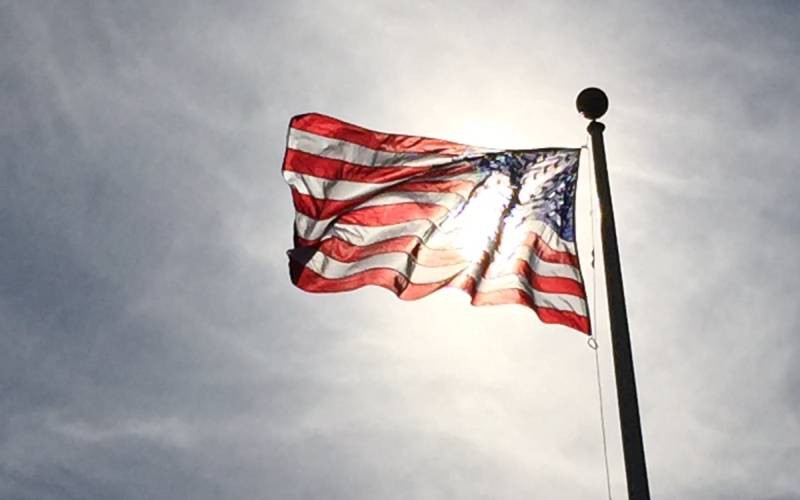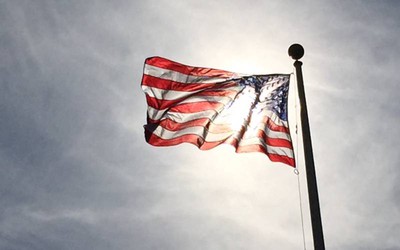

A mandate issued by the US Court of Appeals for the First Circuit in March 2021 is hopefully the beginning of the end of a two-year failed effort by the Trump-era Office of Legal Counsel (OLC) to reinterpret the Wire Act so that it applies to more than just sports betting.
The formal mandate filed this month was another procedural step in the long-running saga. It formalized a previous judgement to dismiss the Department of Justice’s appeal. It also set the clock ticking—giving the losing party 90 days to file a petition for the US Supreme Court to take up the case.
If the DOJ does not escalate its appeal during this timeframe, it hopefully means the end of the entire legal battle. That means that, by mid-June, the final lingering roadblock could be lifted—and regulators in states like Michigan and Pennsylvania could sign deals with other regulators and allow online poker operators to combine player pools between states without concern that such actions would violate federal law.
It could mean that, by year’s end, we will see a PokerStars USA network connecting New Jersey, Michigan and Pennsylvania; a partypoker US Network combining its NJ network with BetMGM Poker Michigan; and a WSOP/888 Network expanding beyond its current Nevada-New Jersey-Delaware network into these markets too.
It is also a path for smaller states to attract online poker operators. West Virginia online poker, for example, is legal and regulated, but given its small size, no operator has been interested in obtaining a license yet. Now, the regulator can also look to join the Multi-State Internet Gaming Agreement (MSIGA) which would make the market much more attractive to existing online poker operators.
We do not know for sure if the DOJ plans to appeal the case to the Supreme Court. However, most industry analysts do not expect them to. The assumption is that the Department of Justice, now under a Biden administration, will have very different priorities. It likely has little appetite to fight this losing case. And even if it were to appeal the case further, there is no guarantee the Supreme Court would even agree to hear the case.
So while there are no assurances yet, signs point to this being resolved unequivocally by the summer. It will be just the clarity regulators say they need to move forward with shared liquidity.
- Great bonus$50 freeplay or Up to $600 deposit match bonus
- The world’s most regulated online poker site
- Great cash game traffic and some of the best weekly guaranteed MTTs
- Stars rewards program rewards play across poker, casino and sports
Two Years of Delaying Safe Regulated Online Poker
The saga began over two years ago, when the US Department of Justice decided to reinterpret the Wire Act—a 1961 statute that limits bookmakers from taking bets across state lines—in such a way that that it applied to other forms of online gambling, including online poker.
This flew in the face of existing established interpretation, including a 2011 DOJ letter that clarified the limits of the statute.
The reason for this abrupt, unprompted reinterpretation of a 50-year-old law is unclear, but there were claims of lobbying and corruption behind it.
Upon reinterpreting the Wire Act, the DOJ set enforcement deadlines, but those ultimately came and went without any change to the status quo. In online poker, WSOP and 888 continued to run its three-state online poker network without interruption.
However, it effectively froze efforts to expand legal online poker. No other operator looked at launching a new network across state lines; no other regulator considered joining the MISGA.
It even delayed the Pennsylvania igaming launch, and made the West Virginia online poker bill effectively DOA.
Then lawsuits were filed. New Jersey state lawmakers, which were leading the way in safe, regulated online gambling in the United States, wanted answers and filed FOIAs. The New Hampshire Lottery Commission, concerned that the new opinion had implications for its multi-state online lottery ticket sales, also demanded clarity.
A court in June 2019 heard the latter case and dismissed the DOJ’s interpretation in no uncertain terms. United States District Judge Paul Barbadoro, noted succinctly that the OLC’s interpretation had “significant coherence problems.”
Failure in Appeals Court
The Department of Justice appealed this decision, and this appeal stretched on for some 18 months.
Finally, in January of this year, the United States Court of Appeals for the First Circuit upheld the lower court’s decision, summarily dismissing once again the OLC’s reinterpretation.
“This landmark decision is a victory for states’ rights; for clear reading of federal statutes, and for the gaming industry and its customers,” said online gaming attorney Jeff Ifrah in a statement at the time. “DOJ doesn’t often lose litigation over the meaning of federal statutes…[h]owever, the OLC’s 2018 opinion was so misguided that the court resoundingly rejected it.”
There was one final path open to the DOJ— taking the decision to the US Supreme Court. There has been no indication either way whether it plans to, but there is good reason to hope that it will not bother.
Firstly, there is a new administration in power, and the Department of Justice has new priorities. There is no suggestion that Biden’s DOJ has any appetite to continue to fight what looks like a lost cause. In fact, Biden was Vice President under the administration that interpreted the Wire Act to be limited to sports wagers.
In addition, Sheldon Adelson, the casino mogul and long-time staunch opponent of online gaming, died last year. It was widely suspected that his influence was behind the 2018 OLC decision. The new brass at Las Vegas Sands has already signaled that the company will take a fresh look at the opportunities for safe, legal online gambling rather than continue to fight it.
It is hoped, therefore, that the DOJ will not take it to the Supreme Court, and even if it did, there is no reason to believe the court would even choose to hear the case.
The Path Towards More States Joining the MSIGA
The lingering possibility of further legal challenge means that regulated multi-state online poker expansion remains on hold. Pennsylvania regulators have stated explicitly that until there is absolute clarity on the issue, it would not consider joining the MSIGA.
That absolute clarity could come if the DOJ issues a statement indicating that it will not take the case to the Supreme Court. It will also come if the clock winds down and no action is taken.
That should also clear any lingering doubts in Michigan where a law passed at the end of 2019 legalizing interstate online poker but only if it would not contravene federal law.
Wire Act Reinterpretation: Timeline of Events
- December 2011: DOJ letter clarifies Wire Act limited to sports betting.
- December 2018: Trump administration DOJ reinterprets the Wire Act.
- February 2019: New Hampshire Lottery Commission (NHLC) challenges this opinion.
- May 2019: New Jersey Attorney General files suit following FOIA request.
- June 2019: Judge rules in favor of NHLC.
- June 2019: DOJ appeals decision and extends enforcement deadline.
- January 2021: United States Court of Appeals for the First Circuit upholds lower court decision.
- March 2021: January decision formalized; 90 day window on filing case with Supreme Court begins.
- June 2021: This window will close.
What Shared Liquidity Would Mean for US Online Poker
Shared liquidity would mean more players playing together, more games running around the clock, and bigger tournament prize pools.
This in turn leads to a more attractive offer, bringing more players to the site and offering a better alternative to illegal, offshore offers.
It also leads to increased competition, with more operators seeking to carve out their share of the online poker market. That means better promotions, bigger guaranteed tournaments, increased marketing and better rewards.
Potential Network Size combining NJ, PA and MI
| New Jersey | Pennsylvania | Michigan | Combined | |
| PokerStars | 130 | 400 | 400 | 780 |
| partypoker US Network | 100 | Expected ~100 | 60-100 | 260 |
| WSOP/888 | 310 | Expected ~150 | Expected ~100 | 560 |
| Total | ~1600-1700 |
PokerStars USA is now a very real thing. The operator already runs online poker rooms in Pennsylvania, Michigan and New Jersey. As pokerfuse has discussed in the past, such a shared network would be one of the largest online poker networks in the world.
The operator has years of experience working with regulators and building these shared player pools. It holds almost two dozen gaming licenses around the world. It already runs a shared liquidity network in Spain, France and Portugal, one of the largest of its kind anywhere in the world.
You can be sure that the operator will be ready on day one to flip the switch and combine everyone under a single PokerStars USA network the day that it can.
- Great bonus$50 freeplay or Up to $600 deposit match bonus
- The world’s most regulated online poker site
- Great cash game traffic and some of the best weekly guaranteed MTTs
- Stars rewards program rewards play across poker, casino and sports
But other operators are also known to be very keen to expand.
The partypoker US Network, which for years has operated a network of three online poker rooms in New Jersey—BetMGM Poker, Borgata Poker and partypoker NJ itself—just took its own first step in expanding.
Earlier in March, it launched BetMGM Michigan Poker, a major step forward for the operator. With its unique unified mobile app, it is very well positioned for connecting up its player pool. The company is also gearing up for other brands in Michigan, and launching some of them in Pennsylvania.
- Best bonusUp to $1000 deposit match bonus in the casino
- Top-rated slots and casino games
- Great online poker offer with $25 freeplay + $600 deposit bonus
$25 freeplay + $1000 deposit match »Play POKER
$25 freeplay + $600 deposit match »
As pokerfuse has exclusively revealed in the past, 888 is also working hard with its partner WSOP to expand its online poker presence into new states, with eyes on both Pennsylvania and Michigan.
It has told pokerfuse that it even hopes to be live there in time for the WSOP summer series this year.
The network is unique as it is the only one already with shared liquidity across state lines: It combines the players of WSOP.com in Nevada and New Jersey, 888poker in New Jersey, and those playing on the three “racinos” in the state of Delaware. Expanding this network into MI, PA and beyond is only natural.
- Massive Value100% deposit bonus up to $1000 + $50 in free play
- The only online poker network that spans across multiple states
- Compete for real WSOP bracelets and rings in official online events from your own home
- Frequent reload bonuses and lucrative monthly promotions
But perhaps the most exciting implication of this development is that smaller states have a path to viable regulated online poker.
Players in West Virginia could be the immediate beneficiaries. The state has already legalized online poker, but no operator has shown in interest in the market given its population of less than 2 million.
However, if regulators join the MSIGA, and assuming the environment is favorable enough, we could certainly see operators like PokerStars, BetMGM and WSOP seek licensing there too in order to expand their networks.

